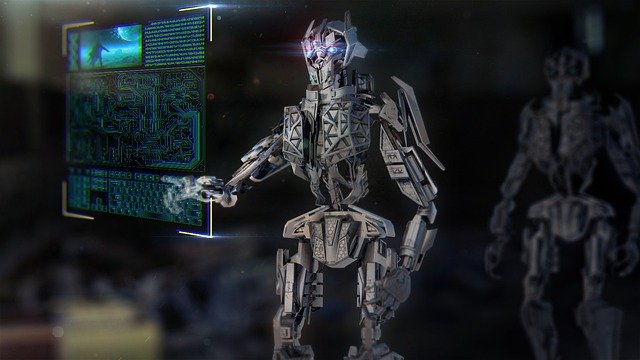Section 1: The Rise of AI Technology in Business
Artificial Intelligence (AI) technology has rapidly emerged as a powerful tool for businesses in recent years. With its ability to analyze vast amounts of data, make predictions, and automate processes, AI has become an essential component of modern business strategies. According to a report by McKinsey, AI has the potential to create an additional $13 trillion in global economic activity by 2030. This staggering figure highlights the immense potential of AI technology for businesses. In this article, we will explore the various ways in which AI is revolutionizing the world of business and unleashing limitless possibilities for creativity.
One of the key advantages of AI technology is its ability to handle large amounts of data. With the rise of big data, businesses are faced with the challenge of extracting valuable insights from vast and complex datasets. This is where AI comes in, with its advanced algorithms and machine learning capabilities, it can analyze data at a scale and speed that is impossible for humans to achieve. This allows businesses to make data-driven decisions and gain a competitive edge in the market.
Moreover, AI technology has the ability to identify patterns and trends in data that humans may not be able to detect. This makes it an invaluable tool for businesses in industries such as finance, healthcare, and marketing, where the ability to accurately predict future outcomes is crucial. For example, AI-powered predictive analytics can help financial institutions identify potential frauds, while in the healthcare industry, it can assist in diagnosing diseases and recommending personalized treatments.
Another significant advantage of AI technology is its ability to automate processes. This not only saves time and resources but also reduces the risk of human error. For instance, in the manufacturing sector, AI-powered robots can perform repetitive and dangerous tasks with precision and efficiency. This not only increases productivity but also improves workplace safety. In the retail sector, AI-powered chatbots can handle customer inquiries and provide personalized recommendations, freeing up human employees to focus on more complex tasks.
Section 2: AI Technology and Creativity
While AI technology is often associated with data and automation, its potential for creativity is often overlooked. However, AI has the ability to augment human creativity and take it to new heights. One of the ways in which AI is unleashing limitless potential for creativity is through its ability to generate new ideas and concepts. With the help of machine learning algorithms, AI can analyze existing data and come up with new and innovative ideas that humans may not have thought of. This can be particularly useful in industries such as advertising and design, where creativity is highly valued.
Moreover, AI technology can also assist in the creative process by providing inspiration and suggestions. For example, in the music industry, AI-powered tools can analyze existing songs and help musicians come up with new melodies and lyrics. This not only speeds up the creative process but also allows for a more diverse range of ideas. Similarly, in the film industry, AI can analyze scripts and provide suggestions for plot twists or character development, enhancing the overall creative output.
AI technology can also help businesses in the field of content creation. With the rise of social media and digital platforms, businesses are constantly in need of fresh and engaging content to attract and retain customers. AI-powered tools can assist in this process by generating content ideas, writing articles, and even creating videos. This not only saves time and resources but also allows businesses to produce a higher volume of content, increasing their reach and visibility.
Section 3: Challenges and Future of AI Technology
While the potential of AI technology for business and creativity is undeniable, it is not without its challenges. One of the main concerns surrounding AI is its potential to replace human jobs. As AI technology becomes more advanced, there is a fear that it may render many job roles obsolete. However, experts argue that while AI may automate certain tasks, it will also create new job opportunities, particularly in the field of AI development and maintenance.
Another challenge is the ethical implications of AI. As AI becomes more integrated into our daily lives, questions arise about its impact on society and the potential for bias in decision-making. For instance, AI algorithms have been found to exhibit racial and gender biases, which can have serious consequences. As such, it is crucial for businesses to ensure that their AI systems are designed and monitored ethically.
Looking ahead, the future of AI technology is filled with endless possibilities. With advancements in areas such as natural language processing, computer vision, and robotics, AI is expected to become even more sophisticated and capable. This will open up new opportunities for businesses to leverage AI for a wide range of applications, from customer service to product development. Additionally, the integration of AI with other emerging technologies such as the Internet of Things (IoT) and blockchain will further enhance its capabilities and potential for businesses.
In conclusion, AI technology has emerged as a game-changer for businesses, providing them with the tools to analyze data, automate processes, and unleash limitless potential for creativity. As we continue to explore the possibilities of AI, it is essential to address the challenges and ensure that it is used ethically and responsibly. With the right approach, AI has the potential to transform businesses and drive economic growth in the years to come.










